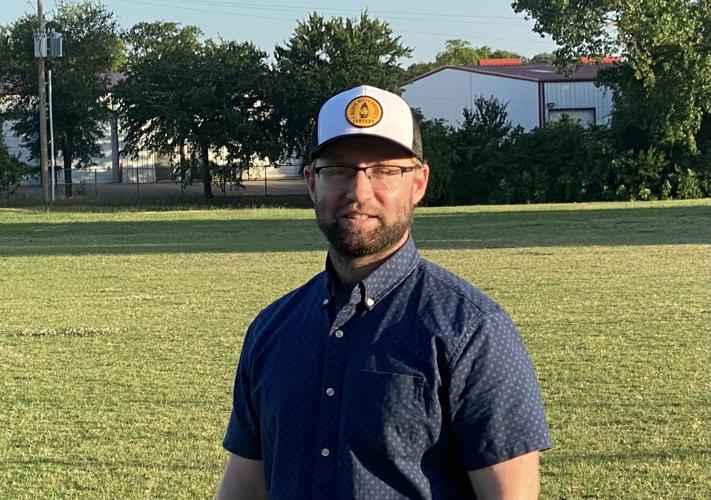Tucson Faith Christian Church Inc. has produced generations of children spanked from infancy based on its teachings, former members say.
One supporter of the church, which recruits on the University of Arizona campus, is a prominent pediatrician who teaches at the UA medical school and has served as chief of staff for the city’s largest hospital, an Arizona Daily Star investigation found.
Dr. Merlin Channing “Chan” Lowe, Jr., chief of staff at Banner-University Medical Center from 2018 to 2020, did not reply to written questions about his ties to Faith Christian.
Public records show Lowe, 45, has been a member of Faith Christian’s board of directors since 2017. Former church members say he joined in the 1990s as a UA undergraduate before graduating from the medical school and completing his UA residency in 2006.
Lowe is one of nine Faith Christian leaders — including four pastors, four board members and the church’s top administrator — who did not respond to repeated requests for comment for this story.
The Star sent detailed requests to Lowe at two email addresses and a personal address. A reporter also called his UA office and spoke with his assistant, who said she would convey the request to check his email.
Lowe quits pediatric group
Until recently, Lowe was president of the Arizona chapter of a national group of children’s doctors opposed to corporal punishment — at the same time he served on the board of a church said to promote it.
Lowe resigned from the state chapter of the American Academy of Pediatrics, one day after the Star sought comment from the chapter on the conflict between his church’s teachings and the stance of the medical community.
Anne Stafford, CEO of the Arizona chapter, said the timing of Lowe’s March 7 resignation was coincidental and unrelated to the Star’s inquiry. Lowe’s departure was prompted by his “personal conflict” with a statement issued by the Arizona chapter and other state medical groups in support of reproductive healthcare, she said.
Lowe also taught continuing medical education classes for other pediatricians through the Arizona chapter and stepped down from that role as well, she said.
UA College of Medicine spokesman David Bruzzese said the university does not make staffing decisions “based on an individual’s religious beliefs, nor does it ask about the religious beliefs of employees.”
“Binding of demons”
On an audio recording of a 2011 church event, Lowe spoke shortly before the head pastor urged parents to start spanking babies early to keep demons at bay.
Part of the recording is publicly accessible on Instagram and former members confirm its authenticity. The Star reviewed an extended version of the recording.
Even young children are “repositories of demons,” senior pastor Stephen M. Hall warned parents. “If your family life does not include the binding of demons, then your family is at risk to be taken by them.”
Hall, 70, who has five grown offspring, described hitting his children in their cribs when they wouldn’t go to sleep.
Back then, he said, doctors advised placing infants face down to sleep, though they now recommend babies sleep on their backs to prevent sudden infant death syndrome.
“When they’re little, their head comes up,” Hall said, describing a common behavior for infants who are face down and awake.
“And their head would come up and when I’d spank them I’d hold their head down. ’Cause I could feel the will. Strong will.”
Hall called on Lowe during the meeting to give a medical update to the church members and introduced him as a doctor. He asked Lowe to talk about the need for childhood vaccinations, but Lowe's comments are inaudible on the recording.
Obedience training
Since 2015, when the Star first reported on Faith Christian, reporters have interviewed a total of 10 former church members who said they left after having children and refusing to adopt Hall’s discipline methods.
Some former church members say they were taught to smack their babies with cardboard dowels stripped from the bottom of dry cleaning hangers.
UA alumnus John Bierman, 35, a campus minister for 10 years, said obedience training using wooden spoons began before children reached their first birthdays.
Training sessions were staged in which a crib blanket was spread on the floor and a baby placed atop the blanket. The mother or father, wielding a wooden spoon, would order the infant not to leave the blanket and was expected to spank them immediately if they did, he said.
“Don’t just show them the spoon. You have to use it,” Bierman remembers church leaders saying as they stood by watching the ritual.
Bierman graduated with an interdisciplinary studies degree in math, philosophy and education in 2010, the same year his wife, Sierra Bierman, 34, earned a UA history degree. Both became campus ministers after graduation and left the church in 2021 with two daughters ages 4 and 2.
“The way they wanted you, pressured you, to raise your children is insane,” John Bierman said.
Methods 'horrific'
Child abuse expert Dr. Roy Lubit called Faith Christian’s alleged discipline methods “horrific — and I mean horrific.”
Lubit, who is based in New York, is board certified in psychiatry, child and adolescent psychiatry and forensic psychiatry. He has testified in lawsuits against cult-like groups that engage in abuse and has published papers about the lasting damage it causes.
The apparent intent to break a child’s will is especially disturbing, Lubit said when the Star relayed the stories of former church members.
“Children internalize how they are treated," he said. "When children are treated in this manner they are filled with pain and fear."
Elizabeth Gershoff, a professor of human development and family sciences at the University of Texas at Austin, has been studying corporal punishment’s effects on children for two decades.
The research is clear, she says: Spanking harms children and does not improve their behavior.

UA alum Nick Puente, left, and his two brothers grew up in Faith Christian Church, where his parents were active members until 2005, when the family left the church. Puente said he’s had conversations about his painful childhood with his parents, who still grapple with the experience. “In their mind, they were doing what God wanted them to do,” he said.
Out of hundreds of research studies, “There are no studies that show it’s good for children,” she said. “It makes (them) more likely to be aggressive, to be anti-social, to have mental health problems, and we know now that it changes children’s brains.”
Punishing pre-verbal children is futile because they aren’t yet capable of reasoning, Gershoff said.
“A baby who is hit a lot in infancy will become very fearful and anxious. You can imagine a dog who’s hit over and over, they just kind of give up,” she said, a reaction known as “learned helplessness.”
Babies who lift their heads instead of going to sleep are not being rebellious or willful, she said. “They raise their head because they’re trying to strengthen their head and neck muscles.”
“Hitting an infant for any reason is upsetting,” she said. “Hitting them for something that’s biology like that just shows the people who recommend that have no sense of how children develop.”
Booze 'became my medicine'
UA alumnus Nick Puente, who graduated in 2002 with a degree in journalism, was raised in the church and recalls growing up in a “heavy-handed, fear-based, abusive environment.”
“As far back as I can remember, we were spanked,” he said. “That was a fundamental parenting technique.”
As an adult, Puente said he abused alcohol to cope with unresolved trauma from childhood.

Former Faith Christian campus minister Nick Puente
Booze “became my medicine,” he said. “It became the way I dealt with a lot of painful memories.”
After he quit drinking six years ago, Puente went on to earn a master’s degree in counseling from Grand Canyon University. He now works at Cottonwood Tucson, an addiction treatment center, where he counsels victims of spiritual abuse.
Puente said he’s had conversations about his painful childhood with his parents, who still grapple with the experience.
“In their mind, they were doing what God wanted them to do,” he said.
Cold and distant
Kathy Sullivan, whose son joined Faith Christian in 2013 as a UA freshman, said she felt relieved at first that he’d found a “wholesome” activity at a school with a reputation for partying.
Before long, though, he became distant and cold during visits home to California. During his junior year he told his mother he planned to work for Faith Christian after graduation instead of using his UA business economics degree.
That’s when Sullivan, 63, started researching the church and learned troubling details from former members and their families. She filed a formal complaint with the UA Dean of Students office, which investigated but found no basis for disciplinary action against the church.
Fearing losing him completely, Sullivan focused on simply maintaining contact.
“We just didn’t talk about Faith Christian,” she said. “I do feel keeping that relationship alive was key. It gave him the ability to see outside of the Faith Christian framework.”
Four years later, Sean Sullivan decided to leave the church.
“Love-bombing”
Now 28 and a mortgage loan officer in Dallas, Sean Sullivan says he can see in hindsight that freshman loneliness made him vulnerable to Faith Christian’s “love-bombing” — a tactic in which new students in particular are showered with attention and offers of instant friendship with a built-in social circle.
“All of a sudden you have all of these nice people talking about Jesus who are bringing you to the barbecue,” he said. “You went from zero to 100 real fast. It's like, how do you give that up?”

Sean Sullivan, 28, was a member of Faith Christian for six years starting when he was "love-bombed" as a freshman at the University Arizona. He said that when his mother had concerns about the church, leaders encouraged him to stop talking with her. He left in 2019.
When church leaders heard about his mother’s concerns, they cited the Bible to try to persuade him to stop talking to her, he said. Questioning church doctrine was forbidden, so pastors had near-total control over members’ lives, Sullivan said.
He said he gradually realized Faith Christian’s practices were negatively affecting him and other church members. He said he decided to leave after being exposed to different spiritual beliefs that felt less controlling and more authentic.
Since he quit in 2019, he said, “I’ve heard horror stories about families that get split over the church.” He said he’s grateful his parents stuck with him.
Some of his friends who left Faith Christian have abandoned their faith entirely, he said.
“I think they just feel so damaged,” he said. “My heart breaks for them.”
'Intelligent people do fall prey'
A common myth about cults and hyper-controlling groups is that smart people don’t join them, according to a prominent cult researcher.
“Intelligent people do fall prey to cults,” psychotherapist Steven A. Hassan of Massachusetts wrote in a 2021 article in Psychology Today.
In fact, Hassan wrote, attracting smart people is a key survival strategy.
“Cults thrive to the extent that they can recruit intelligent, dynamic people,” he wrote.
“Many have a hard time believing that bright, talented people could fall under the control of a cult. But cults intentionally recruit ‘valuable’ people that are intelligent, caring, and motivated,” he said. “To the untrained eye, cult members can appear completely normal.”
Families torn apart
There is plenty of heartbreak to go around, say former Faith Christian campus ministers Jeff and Lisa Phillips of Mesa, who now run an online harbor for the church’s lost souls.
Since 2013, they have served as volunteer administrators of a Facebook page supporting people who quit Faith Christian or one its six satellite churches.
Others have created an Instagram page.
No matter where former members come from geographically, their first concern is often the same, Lisa Phillips said: “They are so relieved to realize they’re not crazy.”
Parents who left with small children — as the Phillipses themselves did in 2010 after working in Tucson and at three Faith Christian satellite churches — find comfort connecting with others who defied the church by refusing to spank their offspring, she said.
Some of the Facebook page’s 500 or so followers are adults trying to come to terms with being raised in the church and spanked throughout childhood, she said.
She said they’ve also heard from hundreds of broken-hearted family members: aunts, uncles, siblings, parents and grandparents whose loved ones joined the church and cut off contact with the family.
“There are grandmas who have not met their grandchildren,” Lisa Phillips said. “This has really torn families apart.”
Jeff Phillips, who graduated from the UA in 1995 with a degree in political science, went on to earn a masters of divinity degree from Phoenix Seminary in 2013 and now works in administration for a Christian university. Helping those wounded by the Faith Christian’s practices has turned into a volunteer healing ministry for him and his wife, he said.
They try to help former members make sense of what happened, and to point them toward healthy churches, therapists, marriage counselors or whatever other assistance they may need, he said.
Jeff Phillips said it’s their way of trying to make amends “for being part of the problem when we were leaders in these churches.”
Their goal, he said, “is to see God’s sheep find true shepherds.”
Get your morning recap of today's local news and read the full stories here: tucne.ws/morning






